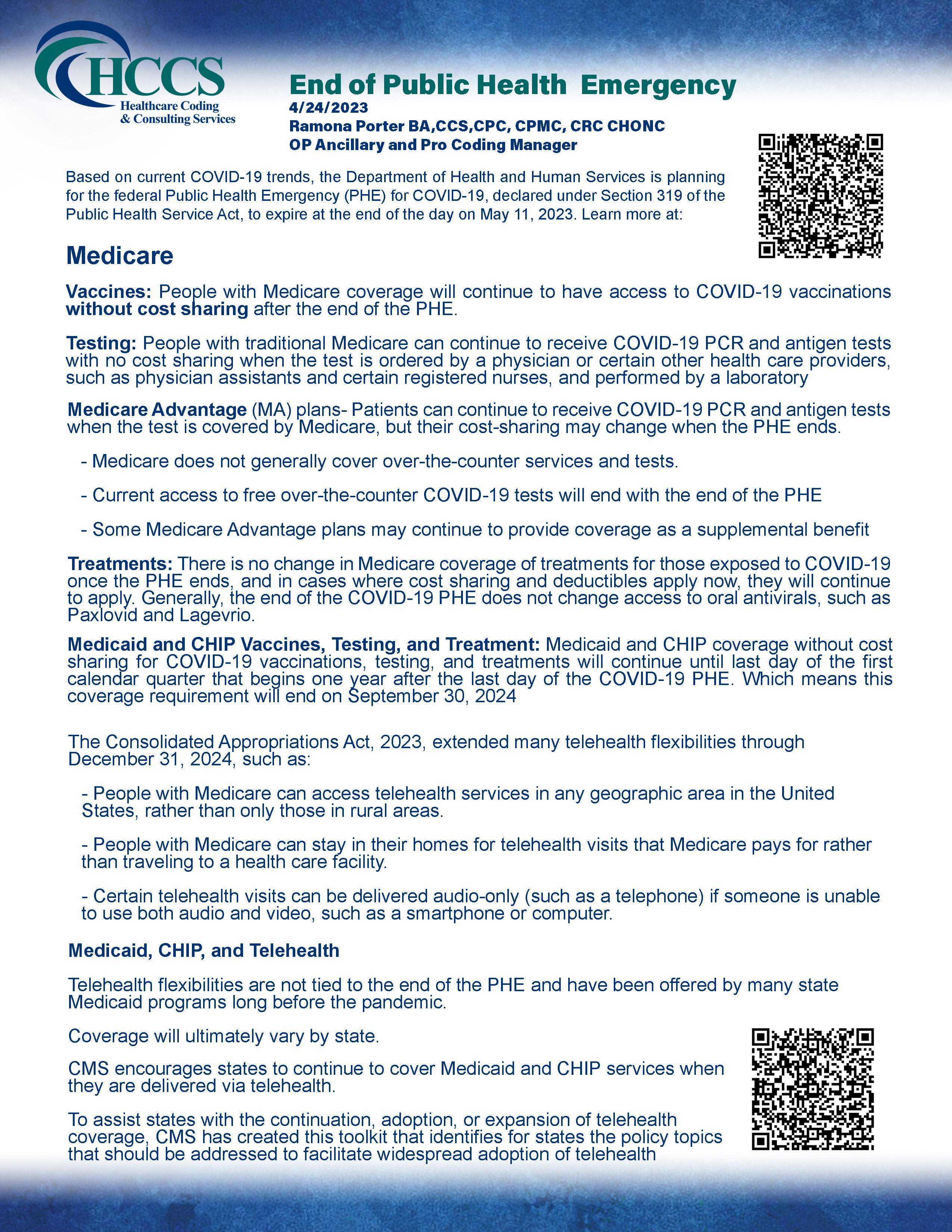If you have been involved in coding and denials management at any point in your career, you know how defeating it can sometimes feel! Understanding the type of denial can help unroof the underlying cause and, in turn, strengthen your rebuttal. Let's look at the two most common types of denials- Coding denials and Clinical denials.
Read MoreEnd of Public Health Emergency
Based on current COVID-19 trends, the Department of Health and Human Services is planning for the federal Public Health Emergency (PHE) for COVID-19, declared under Section 319 of the Public Health Service Act, to expire at the end of the day on May 11, 2023. Learn more at: https://www.cms.gov/files/document/what-do-i-need-know-cms-waivers-flexibilities-and-transition-forward-covid-19-public-health.pdf
Read MoreSpring has arrived, and I have just returned from the 23rd annual Hometown Health Spring Conference at Jekyll Island. This event consistently offers valuable interactions with healthcare providers. In addition to attending several sessions, I also manned the HCCS booth at the trade show.

.png?width=1200&length=1200&name=MicrosoftTeams-image%20(27).png)

Are out of Network Denials Plaguing your Organization?
Managing out-of-network denials refers to the process of addressing and resolving claims that are rejected by insurance providers due to the healthcare service being rendered by a provider who is not part of the insurance network. This can result in the patient being responsible for paying a larger portion of the bill or the entire cost of the service. Effective management of out-of-network denials involves understanding the reason for the denial, appealing the decision, and exploring alternative payment options to minimize the financial impact on the patient.
Read MoreA Christmas Coding Disaster
Developing your Key Performance Indicators
Don’t wait too long to realize you need help with your Revenue Cycle. Too many providers ignore the warning signs of a poorly performing revenue cycle and are barely keeping their heads above water. Physicians and providers have a challenge as they rely heavily on others, typically to ensure that they are utilizing best practices and measuring key performance indicators to indicate healthy revenue cycle practices. Many don’t realize their reimbursements aren’t measuring up until it is too late. A good practice is to have an independent review/audit by an outside consultant at least annually and sometimes more frequently if you are experiencing poor financial performance. Consultants can not only identify gaps and lags in your revenue cycle but provide education to your current staff if needed. They can identify any revenue risk areas or areas of revenue loss.
Read More.png?width=2100&height=1500&name=HCCS%20-%20Company%20Logo%20(New%20Version%20White%20Transparent).png)





